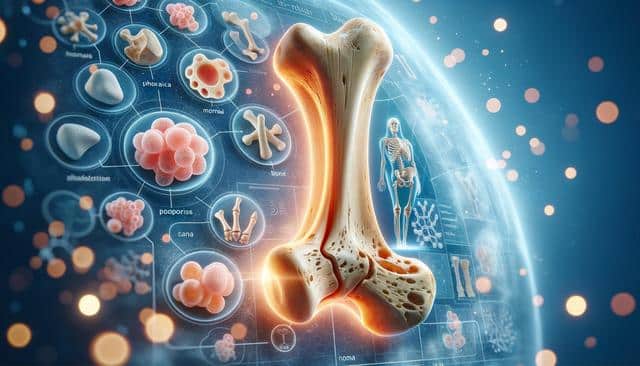Understanding Osteoporosis
Osteoporosis is a medical condition characterized by weakened bones and increased risk of fractures. It commonly affects older adults, but can impact individuals of any age. The thinning of bone tissue and loss of bone density can make even a minor fall or bump result in a serious injury. Understanding osteoporosis is crucial for anyone looking to maintain their bone health. Key factors contributing to the development of osteoporosis include hormonal changes, insufficient calcium and vitamin D intake, lack of physical activity, and certain lifestyle choices like smoking or excessive alcohol consumption. Recognizing these risk factors is the first step in taking proactive measures to protect bone health.
Calcium: The Foundation of Bone Health
Calcium is one of the most essential nutrients for maintaining strong bones. It serves as a critical building block for bone tissue, and a deficiency can significantly increase the risk of osteoporosis. Including a variety of calcium-rich foods in your diet can help support bone strength. Some excellent sources of calcium include:
- Dairy products like milk, cheese, and yogurt
- Leafy green vegetables such as spinach and kale
- Fortified cereals and plant-based milks
By incorporating these foods into your meals, you can ensure your body is receiving the calcium it needs. It’s also important to balance calcium intake with other nutrients like magnesium and phosphorus that work synergistically for optimal bone health.
Vitamin D: Enhancing Calcium Absorption
Vitamin D plays a vital role in bone health by enhancing the absorption of calcium in the gut. Without sufficient vitamin D, the body cannot effectively absorb calcium, leading to potential deficiencies. The best source of vitamin D is sunlight, as the skin synthesizes the vitamin when exposed to UV rays. However, for many, especially those in northern climates or those who spend limited time outdoors, dietary sources are essential. Foods rich in vitamin D include:
- Fatty fish like salmon and mackerel
- Egg yolks
- Fortified foods such as orange juice and cereals
Ensuring adequate vitamin D intake, either through sun exposure, diet, or supplements, is crucial for bone health and reducing the risk of osteoporosis.
Limiting Bone-Damaging Substances
While incorporating nutrient-rich foods into your diet is essential, it’s equally important to limit substances that can negatively impact bone health. High salt intake can lead to calcium loss in the urine, weakening bones over time. Reducing processed foods and opting for fresh, whole foods can help manage salt intake. Caffeine can also interfere with calcium absorption, so it’s wise to moderate consumption of coffee, tea, and caffeinated beverages. Additionally, excessive alcohol consumption can contribute to bone loss, so limiting alcohol intake is advisable for those concerned about osteoporosis.
Creating a Balanced Meal Plan
A balanced meal plan is crucial for supporting bone health and managing osteoporosis. Focus on incorporating a diverse range of nutrient-dense foods that provide the essential vitamins and minerals needed for strong bones. Here are some tips for creating a bone-healthy meal plan:
- Include a variety of fruits and vegetables for their vitamins and antioxidants
- Choose whole grains for additional nutrients and fiber
- Incorporate lean proteins like poultry, beans, and tofu
- Opt for low-fat dairy or plant-based calcium sources
By planning meals that emphasize these elements, you can create a diet that supports bone health naturally and effectively.
Conclusion: Embrace a Bone-Healthy Lifestyle
In conclusion, adopting a diet rich in calcium and vitamin D, along with reducing intake of harmful substances like salt, caffeine, and alcohol, can significantly contribute to bone health. Those concerned about osteoporosis should aim to create a balanced meal plan that incorporates a wide variety of nutrient-dense foods. By making these dietary adjustments and maintaining an active lifestyle, individuals can naturally boost their bone health and reduce the risk of osteoporosis-related complications. Embrace these dietary changes to foster long-term bone strength and overall well-being.
